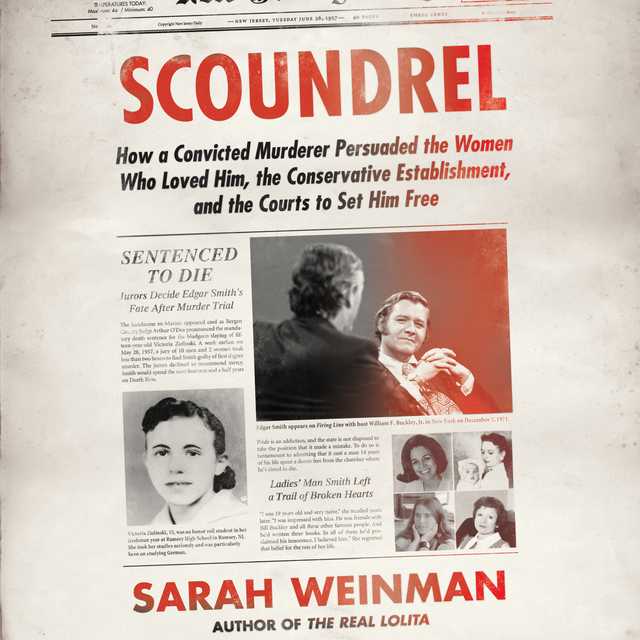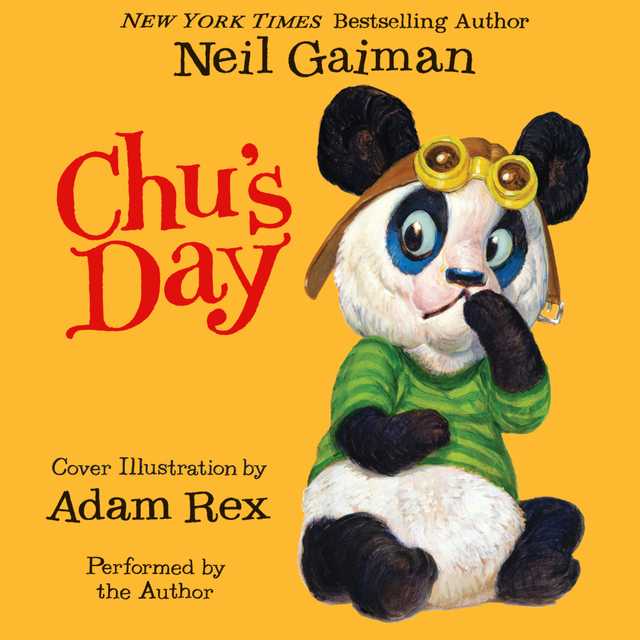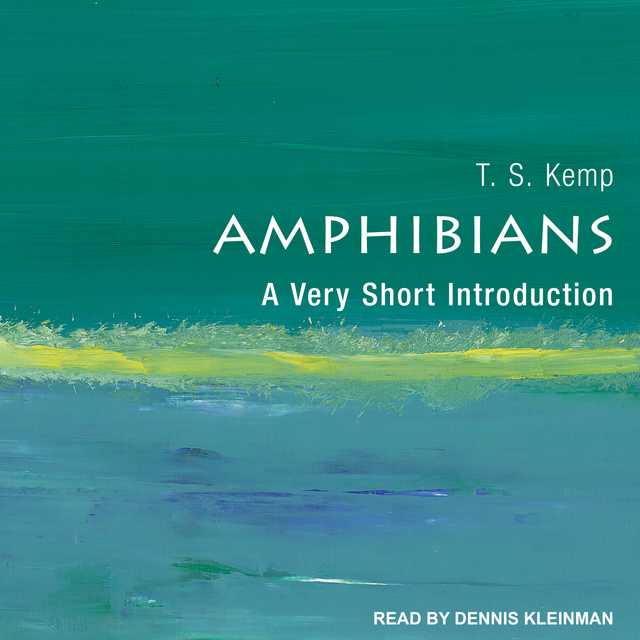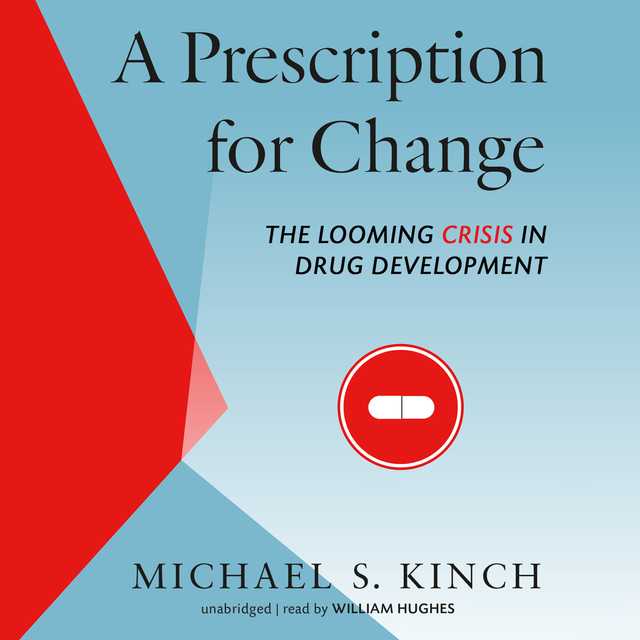Scoundrel Audiobook Summary
A Recommended Read from: The Los Angeles Times * Town and Country * The Seattle Times * Publishers Weekly * Lit Hub * Crime Reads * Alma
From the author of The Real Lolita and editor of Unspeakable Acts, the astonishing story of a murderer who conned the people around him–including conservative thinker William F. Buckley–into helping set him free
In the 1960s, Edgar Smith, in prison and sentenced to death for the murder of teenager Victoria Zielinski, struck up a correspondence with William F. Buckley, the founder of National Review. Buckley, who refused to believe that a man who supported the neoconservative movement could have committed such a heinous crime, began to advocate not only for Smith’s life to be spared but also for his sentence to be overturned.
So begins a bizarre and tragic tale of mid-century America. Sarah Weinman’s Scoundrel leads us through the twists of fate and fortune that brought Smith to freedom, book deals, fame, and eventually to attempting murder again. In Smith, Weinman has uncovered a psychopath who slipped his way into public acclaim and acceptance before crashing down to earth once again.
From the people Smith deceived–Buckley, the book editor who published his work, friends from back home, and the women who loved him–to Americans who were willing to buy into his lies, Weinman explores who in our world is accorded innocence, and how the public becomes complicit in the stories we tell one another.
Scoundrel shows, with clear eyes and sympathy for all those who entered Smith’s orbit, how and why he was able to manipulate, obfuscate, and make a mockery of both well-meaning people and the American criminal justice system. It tells a forgotten part of American history at the nexus of justice, prison reform, and civil rights, and exposes how one man’s ill-conceived plan to set another man free came at the great expense of Edgar Smith’s victims.
Supplemental enhancement PDF accompanies the audiobook.
Other Top Audiobooks
Scoundrel Audiobook Narrator
Gabra Zackman is the narrator of Scoundrel audiobook that was written by Sarah Weinman
Sarah Weinman is the author of Scoundrel and The Real Lolita and the editor, most recently, of Unspeakable Acts: True Tales of Crime, Murder, Deceit & Obsession. She was a 2020 National Magazine Award finalist for reporting and a Calderwood Journalism Fellow at MacDowell, and her work has appeared in New York magazine, the Wall Street Journal, Vanity Fair, and the Washington Post. Weinman writes the crime column for the New York Times Book Review and lives in New York City and Northampton, MA.
About the Author(s) of Scoundrel
Sarah Weinman is the author of Scoundrel
More From the Same
- Author : Sarah Weinman
- The Real Lolita
- Unspeakable Acts
- Publisher : HarperAudio
- Abraham
- American Gods [TV Tie-In]
- Dead Ringer
- House of Sand and Fog
- Prey
Scoundrel Full Details
| Narrator | Gabra Zackman |
| Length | 9 hours 4 minutes |
| Author | Sarah Weinman |
| Category | |
| Publisher | HarperAudio |
| Release date | February 22, 2022 |
| ISBN | 9780062899804 |
Subjects
The publisher of the Scoundrel is HarperAudio. includes the following subjects: The BISAC Subject Code is Biography & Autobiography, Literary
Additional info
The publisher of the Scoundrel is HarperAudio. The imprint is HarperAudio. It is supplied by HarperAudio. The ISBN-13 is 9780062899804.
Global Availability
This book is only available in the United States.
Goodreads Reviews
Pamela
December 10, 2021
This was a very interesting book but unbelievable that a man could be so evil and deceive so many people especially a famous person like William T Buckley.Edgar Smith murdered a young 15 year old girl and then tried to say his friend did it.He ended up being on death row for 14 years before Buckley and other people helped set him free by thinking he was innocent.It nearly cost another young woman her life by releasing him.
Alex
June 03, 2022
4 stars.A true WTF book. Literally how this man played the system and the people around him is angering and will leave you going “how?!” often.
Jake
April 16, 2022
Sarah Weinman’s books have followed a familiar pattern of bringing to life the women of whom are the object of inspiration for horrible, powerful men. Just as she did in The Real Lolita, Weinman covers the lives of the women Edward Smith assaulted, with special detail to the one he murdered, and how he connived his way to an early prison release thanks in part to William F. Buckley, who denigrated the victim without knowing her. Not as tight of a story as her other book, but still mostly well told and important for understanding how the female victims and survivors of violence are often pawns in a larger narrative.
Robert
April 26, 2022
Sarah Weinman tells the story of the convicted criminal (murder and attempted murder) Edgar Smith and those who entered his circle. Edgar Smith was a pure sociopath who was also an attention seeker. There were plenty of people who gave him that attention, especially those such as William F. Buckley and Sophie Wilkins, who corresponded with him for years helping him to get his foot in the door of the world of authors. His is a story of seeking freedom at whatever cost, gaining freedom, and losing freedom because old habits die hard.While I know that the "love" letters between Sophie and Edgar support the claim of "how a convicted murderer persuaded the women who loved him," I honestly could have done without all of the time given to them. I also know that William F. Buckley pretty much was the representative of the Conservative Establishment, but I would have preferred some more details from some other people. I also would have liked some more details on the legal side of the cases, too. The coda is appreciated because it tells the story of Edgar's first crime and how that crime impacted the victim for her entire life. This was also shown elsewhere, too, with the family of the girl he murdered alongside the woman he stabbed and nearly killed. This focus is important in a work of the true crime genre. Additionally, this book would have been stronger if more could have been shared about the thoughts and actions of Sophie Wilkins and William F. Buckley once they no longer believed his innocence.
Kerry
October 06, 2022
Most crime writing alternately entertains and repulses the reader. Such is the case with the story of convicted murdered Edgar Smith, who was sent to prison for murdering a 15 year old girl. Smith read the National Review political magazine and began a correspondence with right wing publisher William F. Buckley. To fully understand the times, it would be good to watch some of the televised debates between Gore Vidal, who is gay, liberal and handsome, and Buckley with his sneering looks and rodent like teeth. Buckley loathed Vidal, and Vidal further antagonized as he could only do best by calling Buckley a neo Nazi and then writing Myra Breckenridge, a transgender main character. Vidal was ahead of his time in many ways nd I do respect Buckley's intellect but I enjoyed seeing this narcissistic pomposity get reeled in and played hard by a sociopath. Buckley provided Smith with financial management, legal help, and a publisher for his story. There the plot thickens as women are introduced to this plot. Sophie Knopf, an editor with Knopf, worked on publishing Smith's book Brief Against Death. Sophie is addicted to the dopamine rush of a relationship with a violent sociopath, but she begins to learn just what kind of crazy Smith is when the book gets published and he irrationally lashes out at her as well begins relationships with other women. The last part will be his undoing. No spoilers, but I am pretty you guess how this tragedy ends.
Gronk
August 07, 2022
I knew nothing about Edgar Smith before picking this up from the library. Weinman writes clearly and the narrative is well paced. The title is a bit misleading - Weinman shows us that Smith convinced many that he didn't commit the murder he was convicted of, but she doesn't show us *how*. People were simply duped. Weinman writes this about one of his dupes: "She couldn't fathom that Edgar had actually done it when he'd written such wonderful letters to herself and to Buckley."What's interesting to me is the reason he was released from prison. His conviction was "overturned on the grounds that his unsigned confession was coerced and was therefore uncontitutional." He was to have a new trial within 60 days or he would have to be released.A new trial was not held - instead he accepted a plea in which he admitted to killing Zielinski. The judge sentenced him to 25-30 years, credited the 14.5 years already served, gave time off for good behavior, and suspended the rest of the sentence. This was not a case of Smith duping the courts IMO.What IS surprising is how anyone, presented with the information Weinman presents about the initial trial, could believe him to be not guilty. Buckley states had he been on the jury he'd have had reasonable doubt and voted not guilty. Even without modern forensics I don't understand how that would be possible given the evidence (even without the confession). Except that he was a good looking white man with charm who managed to write well.
Ben
February 21, 2022
Thanks to NetGalley and Ecco for an ARC of this title.I was a fan of the thorough approach Sarah Weinman took in The Real Lolita: The Kidnapping of Sally Horner and the Novel that Scandalized the World, and her curatorial eye in Unspeakable Acts: True Tales of Crime, Murder, Deceit, and Obsession, so I was very excited to see she was writing another true crime book about a case I hadn't heard anything about.Edger Smith is a real piece of work, and Weinman does a great job of using various sources to show us just how he committed his many crimes, but also convinced everyone he was innocent (until that all fell apart in the 70s). I would have maybe loved a little more about his (apparently mostly terrible) work as a published author, but otherwise this does a great job of telling this story without glorifying its central figure.
MM Suarez
July 15, 2022
I had never heard of Edgar Smith and his heinous crimes but I certainly had heard of William F. Buckley and I am not all that surprised that a white, entitled, arrogant man like him was persuaded and became an advocate for this killer, since men like Buckley consider themselves infallible, once he made up his mind that Smith was wrongly convicted (in spite of all evidence to the contrary) that was all she wrote. Edgar Smith happened to be white and attractive, had Buckley become an advocate for any of the many black and brown men wrongly convicted of a brutal murder, now that would have surprised me. One of the most disgusting parts of the book (there are plenty) was reading editor Sophie Wilkin's sexually explicit letters to Smith, yuck!
Avid Reader and Geek Girl
February 21, 2023
4 starsThis was an interesting read. I liked that it was more about life than the violent crimes of the man. And mostly about the relationships within his life. The narration was excellent for a non-fiction book. This is also a guide in why never to just take someone at their word when they're convicted of a crime and claim they're innocent. And why you do need proof that there was something wrong with their trial or the investigation.
Angela's Booked
July 26, 2022
This was so intriguing. Very well-written. Some parts felt like a work of fiction because I couldn’t believe what a smooth talker Edgar Smith was and how he got all these women he got to fall in love with him is beyond me.
Lindsay
March 17, 2022
What an incredible story. So well researched and written. Just wow.
Lindsay
November 01, 2022
Psychopathy and extreme wealth are one in the same. How did the book make me feel/think?What did I learn from Scoundrel?It is a fascinating read. I never thought I would be into a historical murder story.I dove in.What a voyeuristic ride. The writing is captivating. Weinman is a fabulous storyteller. I hope she’s okay (after being immersed in this horrendous story).Edgar Smith was a monster, and William F. Buckley was a monster as well, who walked lockstep with Smith.I guess what I learned from Scoundrel is that there is a razor-thin line between psychopathy, genius and the utter manipulation of everything and everyone around you for personal gain.Narcissism, sociopathy, and psychopathy are deadly bedfellows. Extreme wealth is a disease. I learned those inflicted by extreme wealth care about only one thing: themselves.I feel a sense of calm. Now, I understand the news better. We all scream about political figures saying insane things and still being loved. I get it now. The shackles attached to those needing validation, the wealthy + deranged mentally ill (1), do not care. We shriek: These people need to listen. They won’t. Because after they’ve jumped on a cause, their hearing has been muted. The rest of us suffer the noise of not comprehending why those diseased are not as outraged as the rest.That’s how Scoundrel made me feel/think.You can’t change a debilitating illness. Psychopathy and extreme wealth are the same. 1) I’m not making light of mental illness; these thoughts pertain specifically to monsters of the ilk of Smith + Buckley + those who often rise the political ranks. WRITTEN: 12 October 2022
C.G.
October 22, 2021
A fascinating if depressing story of a cold-blooded killer of a teen girl who receives a death sentence but is eventually championed as innocent by a well-known Conservative pundit and a Knopf editor who ushers him to literary fame with his first book, A Brief Against Death, which was a minor bestseller. (As crime podcasts are hot now, true crime "nonfiction novels" by Truman Capote and Norman Mailer were bestsellers.)Within a few years of Edgar Smith's release, he tries to kill another woman. At this point, all of his champions realize they'd been horribly fooled. (Or horribly fooled by themselves.)Edgar Smith, a born sociopath, begins attacking girls when he's still a boy. In his early 20s, he kidnaps and murders a 15-year-old local girl named Vickie Zielinski. He's sentenced to death. Despite overwhelming physical evidence - such as her blood on his pants - and even a confession, he is such a bald-faced manipulator that he is very quickly able to befriend several important people on the outside who spend years diligently working for his release. The most important of those people is Firing Line pundit William Buckley, Jr. who primarily seemed to believe in Smith's innocence because Smith liked his magazine, National Review.The Knopf editor, Sophie Wilkins, couldn't seem to wrap her head around the idea that a man who wrote her amusing letters could also be a cold-blooded killer, so she began an epistolary relationship with him that soon turned sexual (today we'd call it a text relationship). She also shepherded his first book to publication - a memoir that proclaimed his innocence and, as was customary during the times (the 50s-70s), blamed everything on the victim (calling her sexually aggressive, etc.). As for his attack of an 11-year-old girl in the woods years earlier, he also blamed the girl, insisting she was a pathological liar who''d accused many men of rape (despite no evidence of this). It's depressing and demoralizing to see how quickly his self-serving lies are swallowed by Buckley, Wilkins, various lawyers, and various women who date him while he's incarcerated.After 14 years worth of legal wrangling, he's released and feted in NYC literary circles, gets an apartment and girlfriend, publishes more books, and even has a freelance journalism career. After his girlfriend dumps him after one too many incidents where his mask drops and he shows his sociopathic side, he finds a young, timid 19-year-old girl (he's in his mid-40s) and marries her. But his true nature can't be tamped down for long, and soon he is regularly abusing his young wife, getting deep into debt, and alienating his influential champions. After he gets turned down for a job, he does what he normally does when he's upset - he tries to kill a random woman, stabbing her in her heart. She somehow survives and this time Smith won't escape the yoke of prison.Author Sarah Weinman (The Real Lolita) does a fine job telling this most outrageously appalling of stories, and doing it with a simple but knowledgeable style. It wasn't always an easy book to read, and it took me longer than expected because the first third of it is so relentlessly bleak. Bad men and female victims everywhere. Even Vickie's dad is horrible - at one point sexually assaulting the family dog, if you can believe it. The story picked up for me when Sophie Wilkins - intelligent, cultured, and also stressed and bored (her husband had mental health issues) quickly falls prey to Smith's raffish and inconsistent "charms" and the two embark on a love letter affair.It took Truman Capote to see through Edgar Smith's fake persona. Asked to blurb Smith's book, he told Buckley he believed Smith was guilty. Asked why, Truman said in his usual wise, droll fashion: "I haven't met one yet who isn't."Thank you Sarah Weinman, Ecco, and NetGalley for an ARC of this book in exchange for an honest review.
Stephanie
January 27, 2022
I recieved a copy of Scoundrel from a Goodreads Giveaway.Before reading this book I had not heard of this case. Let me just say WOW! How one man can con so many people into believing he is innocent and be set free, then still con others while out in the free world. Some of the information in this book blew my mind!I feel that Scoundrel shows how the justice system has failed people. Yet it has come a long way since 1957. Also, makes you wonder what changes need to be made to this day.I finished this book in two days as I could not put it down. I will look into this case more when I have time. I would definitely recommend to others.
Sharon
July 07, 2022
Fascinating story about how a convicted murderer who killed a fifteen-year old girl became involved with William Buckley while he was incarcerated. It was near the start of the conservative movement and a new trial determined he was a free man. He then attempted to murder another woman but she narrowly escaped.
Sue
August 19, 2022
In 1957, a young New Jersey man named Edgar Smith was convicted of the murder of 15-year-old Victoria Zielinski. It was a heinous crime; her skull had been crushed by rocks and a baseball bat. The evidence against Smith was so overwhelming that a jury took less than two hours to convict him and sentence him to death.Frequent appeals kept Smith alive, and then he got a lucky break: the famous conservative William F. Buckley learned that Smith was a devoted reader of the National Review, the publication Buckley had founded. “Over the next nine years,” writes Sarah Weinman, “through an exchange of more than 1,500 pages of correspondence, the two men became friends—and Buckley became convinced that Smith was not Zielinski’s killer.”Not only did Buckley believe in Smith’s innocence, he contributed time, money and the full weight of his celebrity to free him, and helped him publish a book about his case called Brief Against Death, which became a bestseller. After Smith’s release, one of the first things he did was appear as a guest on a special two-part edition of Buckley’s TV show, “Firing Line.”Unfortunately, the smooth-talking criminal was in fact guilty of Zielinski’s murder (he eventually confessed), and after he was granted his freedom, Smith did not go on to become the model citizen Buckley no doubt expected him to be. He tried to kill another woman, but this one managed to escape, and sent Smith back to prison, where he spent the remainder of his life. How did Smith manage to hoodwink one of America’s foremost public intellectuals, as well as numerous women, including an editor at Knopf 20 years his senior, who fell madly in love with the convicted killer? That is the question Weinman attempts to answer in her riveting new true crime saga, "Scoundrel: How a Convicted Murderer Persuaded the Women Who Loved Him, the Conservative Establishment, and the Courts to Set Him Free."Weinman lays out the basics of Smith’s life in the introduction, so the reader goes into the book with an awareness that this is not a tale of wrongful conviction. For me, the heart of Scoundrel was Smith’s correspondence not with Buckley but with Sophie Wilkins, his editor at the prestigious publishing house Alfred A. Knopf. Stuck in an unhappy marriage, Wilkins became besotted with Smith, encouraging him to write his book and providing him with an outlet for his sexual imagination. Weinman quotes their missives at length; the fact that these very-embarrassing-in-hindsight documents survived at all seems quite miraculous (Wilkins, who died in 2003, kept all of her correspondence “filed away in boxes she did not touch for decades”; her papers are now housed at Columbia University).Of course, many women have fallen in love with convicted killers—what elevates this particular story is simply how Smith became the darling of the New York literati, publishing in Playboy and Esquire and winning plaudits from stars like Ross Macdonald and James M. Cain. “We were taken in, I suspect, in part by our unwillingness to believe that anyone who loved [National Review] could be a savage killer,” a former correspondent for the magazine told Weinman. Whether Smith actually believed in Buckley’s conservative principles can never be known, of course; his greatest talent seemed to be showing people exactly what they wanted to see, whether that was a wronged innocent, an attentive lover, or a self-taught intellectual. In fact, he was just another man who was unable to control his murderous impulses.
Bookreporter.com
February 27, 2022
The stain of wrongful convictions upon the American criminal justice system seems impossible to eradicate. In my home state of Illinois, there was a time when the number of inmates wrongfully convicted and then released from incarceration exceeded the number of inmates awaiting execution. That sad state of affairs was a prime factor in the decision of the Illinois legislature to abolish the death penalty.The story has become quite commonplace. Books, movies and television shows featuring the crusading attorney and hard-working investigators battling overzealous prosecutors and police are everywhere. It is not even a debate anymore that our criminal justice system produces wrongful convictions. Even the most strident “law and order” public figures grudgingly accept that sometimes the system fails.Sarah Weinman’s SCOUNDREL is an examination of one such wrongful conviction, but it’s a case that took a unique turn. Edgar Smith, championed by many as a victim, turned out to be a manipulator of the criminal justice system. He was, in fact, rightfully convicted, and until the system turned him loose, he deserved to be in prison. Sadly, his premature release only led to another violent crime.Wrongful conviction cases fall into several categories. In many instances, continued investigations yield new evidence, often scientific, that clearly establish innocence. Other times, legal shortcomings in the procedure result in new trials being ordered, which is what happened in the Edgar Smith case.There was never any evidence or investigation that clearly established Smith did not commit the crime for which he was imprisoned. He was convicted of the murder of teenager Victoria Ann Zielinski in 1957. Sentenced to death, he was incarcerated and eventually was befriended in prison by noted conservative writer William F. Buckley Jr. With the assistance of Buckley and a team of lawyers, Smith --- after 19 different challenges to his conviction --- succeeded in obtaining a retrial in 1971. He had given a confession to the police after a lengthy interrogation, but that was eventually barred by a judge.Smith ended up taking a plea deal for a reduced sentence and was released from prison. His contact with Buckley made him a celebrity, writing bestselling books and lecturing across America. He was a poster child for the flaws in the American criminal justice system. Then he wasn’t. Five years after his release, he was arrested for the abduction and attempted murder of another woman, Lefteriya "Lisa" Ozbun, in California, where he was tried, convicted and sentenced to life in prison. Smith’s legal team and celebrity supporters abandoned him. He was denied parole on several occasions, lost each appeal of his second conviction, and died in prison in 2017, outliving many of the participants in his remarkable journey through the legal system.This is a captivating history on several levels. Impressively detailed and wonderfully written, it chronicles the Edgar Smith case from all aspects. In its own style, it exposes celebrity and the criminal justice system from a different perspective. Sadistic criminals often have another character trait --- they are extraordinary con men. Great books have been written about them. SCOUNDREL is such a book, and Edgar Smith is such a man.Reviewed by Stuart Shiffman
Frequently asked questions
Listening to audiobooks not only easy, it is also very convenient. You can listen to audiobooks on almost every device. From your laptop to your smart phone or even a smart speaker like Apple HomePod or even Alexa. Here’s how you can get started listening to audiobooks.
- 1. Download your favorite audiobook app such as Speechify.
- 2. Sign up for an account.
- 3. Browse the library for the best audiobooks and select the first one for free
- 4. Download the audiobook file to your device
- 5. Open the Speechify audiobook app and select the audiobook you want to listen to.
- 6. Adjust the playback speed and other settings to your preference.
- 7. Press play and enjoy!
While you can listen to the bestsellers on almost any device, and preferences may vary, generally smart phones are offer the most convenience factor. You could be working out, grocery shopping, or even watching your dog in the dog park on a Saturday morning.
However, most audiobook apps work across multiple devices so you can pick up that riveting new Stephen King book you started at the dog park, back on your laptop when you get back home.
Speechify is one of the best apps for audiobooks. The pricing structure is the most competitive in the market and the app is easy to use. It features the best sellers and award winning authors. Listen to your favorite books or discover new ones and listen to real voice actors read to you. Getting started is easy, the first book is free.
Research showcasing the brain health benefits of reading on a regular basis is wide-ranging and undeniable. However, research comparing the benefits of reading vs listening is much more sparse. According to professor of psychology and author Dr. Kristen Willeumier, though, there is good reason to believe that the reading experience provided by audiobooks offers many of the same brain benefits as reading a physical book.
Audiobooks are recordings of books that are read aloud by a professional voice actor. The recordings are typically available for purchase and download in digital formats such as MP3, WMA, or AAC. They can also be streamed from online services like Speechify, Audible, AppleBooks, or Spotify.
You simply download the app onto your smart phone, create your account, and in Speechify, you can choose your first book, from our vast library of best-sellers and classics, to read for free.
Audiobooks, like real books can add up over time. Here’s where you can listen to audiobooks for free. Speechify let’s you read your first best seller for free. Apart from that, we have a vast selection of free audiobooks that you can enjoy. Get the same rich experience no matter if the book was free or not.
It depends. Yes, there are free audiobooks and paid audiobooks. Speechify offers a blend of both!
It varies. The easiest way depends on a few things. The app and service you use, which device, and platform. Speechify is the easiest way to listen to audiobooks. Downloading the app is quick. It is not a large app and does not eat up space on your iPhone or Android device.
Listening to audiobooks on your smart phone, with Speechify, is the easiest way to listen to audiobooks.






























